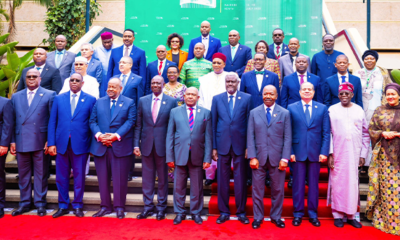African authorities are seeking innovative methods to enhance funding for the agriculture industry in the continent and to improve the price and accessibility of fertilizers. This urgency arises from the recognition of the deteriorating condition of arable land in Africa.
Recent studies indicate that over 65% of agricultural land in Africa is currently experiencing degradation as a result of insufficient fertilizer utilization, soil erosion, and acidification. This alarming situation has raised concerns among leaders, as it poses a significant existential danger to the foundation of the continent’s economies, namely agriculture.
The Heads of State and government, along with the leaders participating in the Africa Fertiliser and Soil Health Summit in Nairobi this week, believe that increased funding and intra-Africa trade in fertilisers will be essential for sustaining agriculture across the continent.
The extent of land degradation in sub-Saharan Africa is a topic of ongoing debate. Conflicting perspectives exist regarding its regional and local scales, methodologies and reliability of indicators, and the effects of past and current degradation on food security, rural livelihoods, and the future of Africa.
“Fertiliser access and affordability must be improved. Financing tools such as trade credit guarantees, working capital, and targeted subsidies must be consolidated to reduce market distortions, reduce costs and strengthen input supply chains,” said the leaders in the Nairobi Declaration published on May 9.
“The need for regional cooperation on the issue of fertiliser and soil health is greater than ever before as opportunities for investment and great inter- and intra-regional trade are now significantly enhanced by AU member states’ adoption of the Africa Continental Free Trade Area (AfCFTA).”
“The majority of Member States are still over-dependent on imported fertilisers, especially non-phosphate-based fertilizers which expose Africa to external market shocks and price volatility,” they explained.
Based on data from the African Union, fertilizer utilization in Africa is significantly lower compared to other regions globally. The global average for fertiliser use is 135kg per hectare, however, in Africa, it is just 18kg. This is far lower than the aim of 50kg/ha set in 2006 at a conference in Abuja.
What’s more, “the recent global fertiliser crisis has disproportionately affected Africa, with a year-on-year decline of 25 percent in fertiliser consumption in 2022,” said the declaration.
“Recent global economic crises, compounded by supply chain disruptions from the Covid-19 pandemic and geopolitical dynamics, have worsened fertiliser affordability and availability, and disrupted agriculture, resulting in reduced acreage and lower yields,” Kenyan President William Ruto said in his address at the summit.
“We call upon the private sector to increase investments in Africa’s fertiliser industry and promote sustainable soil management practices.”
Private sector entities operating in agricultural production and fertiliser manufacturing assert that reducing the price of fertilisers to ensure accessibility for small-scale farmers is vital, although it is a challenge that they are unable to do single-handedly.
“Governments should relook tax policy for fertilisers and could remove some items to lower overall costs,” said William Ngeno, country representative in Kenya and Uganda for fertiliser manufacturer Yara International.
“Partnership in the building last mile access to fertiliser with private sector is crucial. Farmers need to access the fertiliser as close to them as possible.”


 VenturesNow18 hours ago
VenturesNow18 hours ago
 VenturesNow18 hours ago
VenturesNow18 hours ago
 VenturesNow19 hours ago
VenturesNow19 hours ago
 Politics19 hours ago
Politics19 hours ago































